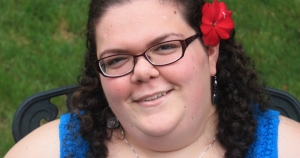Discussion: If We Could Tell an Author One Thing …
If our contributors could tell an author writing a character with their disability one thing–besides “do your research”–what would it be?
If our contributors could tell an author writing a character with their disability one thing–besides “do your research”–what would it be?

What concerns me is that disabled characters are often integrated in the form of tokenism, meaning one token character that could be considered “different” is included in the plot. And even then, such characters are frequently depicted in stereotypical ways, despite being created by authors who may have the best of intentions.

I’ve talked a lot about the ways my disability has affected my body image, my sexuality, my confidence, and my social interactions, and all of those things are important to consider when writing a disabled character. Today, however, I want to focus on the ways my disability affects the logistics of my life.

I don’t remember the first time I was bullied, but I do remember the moment I finally realized that I had been bullied.
What you won’t be able to see when you first meet me is this: I’m a published author. I read all the time. I write all the time, too. I dictate, using an old-fashioned cassette recorder, and my mother types up my finished drafts.

All too often, portrayals of disability in literature mirror the common assumption that disability signifies helplessness.
What kind of tips do our contributors have for authors seeking to respectfully write disabled characters?

A poster child, to me, is a child with a disability who is “shown off” as a way to generate funds, awareness, understanding, more funds. Mostly funds, in my experience.